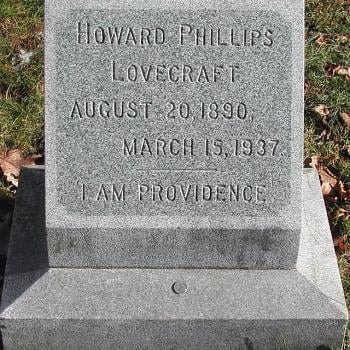Editor's Note: This article is part of an online symposium, "Does Seminary Have a Future?" hosted at Patheos this month. Read other perspectives here.
We are living in a tumultuous time. One need only turn on the news or open the paper to read the many stories related to the economic downturn in our nation, the presidential debates, the Occupy Wall Street Movement, unrest in Egypt, Libya, Yemen, and the wars in Afghanistan and Iraq. In the midst of these very significant and hot topics, we are also frequently reminded of the rising costs of education, the huge student loan debt that straps many of our young people just completing college, and the continued inequities related to education in the U.S. Finally, when we turn to the church front, we hear of ever declining congregations and denominations, outrageous ethical scandals around religious leaders of "successful" ministries, and declining commitments to seminary training. What a time to be in theological education!
Since the 1960s, the mainline seminary has seen several shifts in theological emphasis, from heavy emphasis on the political during and after the Civil Rights Movement, to the God is Dead Movement of the late 60s, to an emphasis on pastoral care in the 70s and 80s, and now a shift toward multi-cultural and inter-faith conversations. However, institutionally (i.e., structurally) we have remained pretty much the same.
Seminaries are in a mode of decline, and according to institutional theory, it's time for a renewal—not just a new theological emphasis, but a renewal of structure. When institutions enter the decline phase, it is generally due to several factors operating at once: too much debt, not enough revenue, inadequate leadership, inexperienced management, lack of planning for times of plateau and decline, and failure to change. While in decline, the worst thing an organization can do is, as the saying goes, "the same thing while expecting different results." Institutions in decline either need to renew or plan their funeral.
What does this mean for theological education (i.e., the seminary) in America today? The Association of Theological Schools (ATS) statistics have shown that overall the numbers of students attending MDiv programs is on the decline, while the number of students entering MA programs is on the rise. Simultaneously, the numbers of Caucasians entering MDiv programs is declining, while the numbers of African-Americans, Asians and Latinos are on the rise. Finally, the fasting growing ethnic group in the U.S. is Latino. Yet, our seminary structures, curriculums, and accreditation standards continue to be primarily euro-centric and prohibitive for many coming from these culture groups. While individual course content in any given institution might reflect considerable awareness of ethnic and cultural diversity, the institutional, curricular and accreditation structures themselves are still quite euro-centric.
If seminaries are to become relevant to contemporary culture(s), we must be open to new structures and standards as well as new course content. At the last gathering of Academic Deans from ATS accredited schools, Dan Aleshire, the director of ATS, gave a presentation in which he surfaced much of this data. At the close of his presentation, he challenged us to get moving—to begin thinking about seminary in new ways. I, for one, have taken that challenge to heart, but one person, one school, cannot change the tenor of theological education in America. It's time to make some drastic changes—it's time for a renewal—lest we end up attending our own funeral.
10/28/2011 4:00:00 AM




